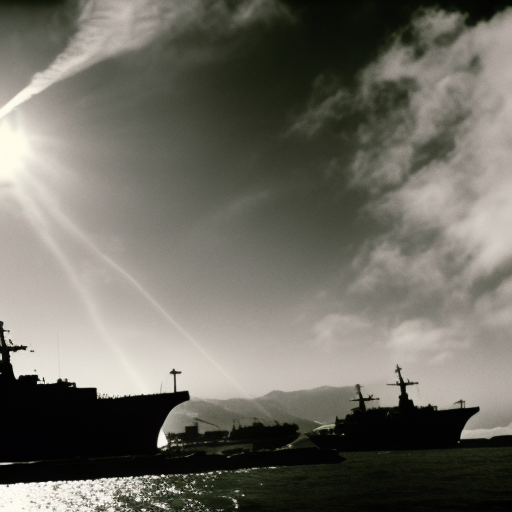Battle of Gibraltar: A Key Naval Engagement in the Mediterranean
The Battle of Gibraltar was a significant naval engagement that took place during the American Revolutionary War on July 24, 1781. It was fought between the British and the Spanish fleets near the Strait of Gibraltar, a strategically important location that controlled access to the Mediterranean Sea. The battle resulted in a British victory and ensured their continued control over Gibraltar.
Background:
At the time, Gibraltar was a British territory that had been captured from Spain in 1704. The Spanish, seeking to regain control of the strategic outpost, formed an alliance with France, a major adversary of Britain. The Spanish-French fleet, under the command of Admiral Luis de Córdova, aimed to break the British blockade of Gibraltar and launch an assault on the fortress.
The British Fleet:
The British fleet, led by Admiral George Darby, was stationed off Gibraltar to defend the territory. It consisted of 36 ships of the line, including several powerful warships. The British had the advantage of superior firepower and experienced sailors, giving them a strong defensive position.
The Spanish-French Fleet:
The Spanish-French fleet, comprising 49 ships of the line, outnumbered the British fleet. However, their ships were generally smaller and less well-equipped. The Spanish-French alliance hoped to use their numerical advantage to overpower the British and gain control of Gibraltar.
The Battle:
The battle began on the morning of July 24, 1781, when the Spanish-French fleet approached the British blockade. The British ships formed a defensive line, with the larger and more powerful vessels positioned at the center. The Spanish-French fleet attempted to break through the British line, but the British ships held their ground and repelled the attackers.
Strategic Maneuvers:
Throughout the battle, both sides engaged in various strategic maneuvers to gain an advantage. The British used their superior firepower to target individual enemy ships, causing significant damage. The Spanish-French fleet, on the other hand, attempted to outmaneuver the British and break their line. However, the British ships maintained their formation and successfully defended Gibraltar.
Outcome:
After several hours of intense fighting, the Spanish-French fleet was forced to retreat. The British had successfully defended Gibraltar, ensuring their continued control over the territory. The battle was a significant victory for the British and dealt a blow to the Spanish-French alliance’s plans to regain control of Gibraltar.
Significance:
The Battle of Gibraltar had several important consequences. Firstly, it demonstrated the strength of the British navy and their ability to defend strategically important territories. Secondly, it weakened the Spanish-French alliance and hindered their efforts to challenge British dominance in the Mediterranean. Lastly, it boosted British morale and provided a much-needed victory during a challenging period of the American Revolutionary War.
In conclusion, the Battle of Gibraltar was a crucial naval engagement that took place during the American Revolutionary War. The British successfully defended Gibraltar against the Spanish-French fleet, securing their control over the territory. The battle showcased the strength of the British navy and had significant consequences for the balance of power in the Mediterranean.












